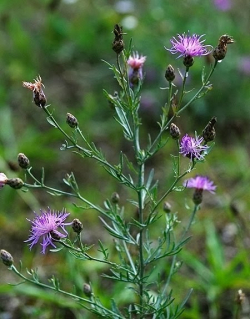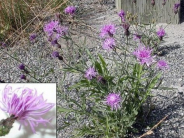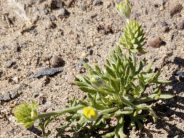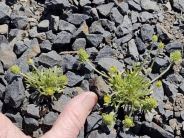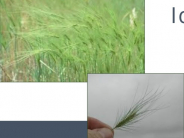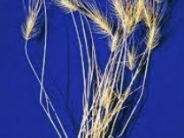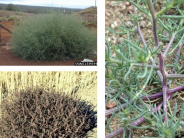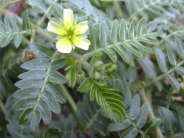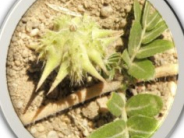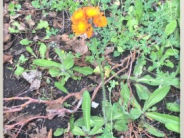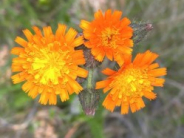Noxious Weed Program
Noxious Weed Control - The Problem
The problem of noxious, non-native weeds proliferating in Central Oregon is severe. Noxious weeds overrun native vegetation, destroy natural animal habitat, shelter undesirable insects, steal scarce water, infest crops and cost local communities in terms of visual blight, a reduction of property values and lost agricultural dollars. Some noxious weeds are poisonous to humans, livestock and wildlife. Seeds from noxious weeds are spread by foot and vehicular traffic along our roadways and through our public lands. Many property owners unknowingly have these non-native, noxious weeds growing in their yards and fields, which aggravates the situation.
Roadside Herbicide Spraying
The County has an active noxious weed eradication program. Herbicides are used to treat roadside vegetation along County roads.
Agreement for Roadside Vegetation Control
If you would prefer that herbicides not be sprayed along your property road frontage you can submit a "Agreement For Vegetation Control on County Right of Way" form. Weed control in a "No Spray" area is the responsibility of the abutting land owner or resident. See Supporting Document Section Below.
Financial Assistance for Noxious Weeds Control
Deschutes County offers financial assistance to private land owners who wish to control noxious weeds on their property. See Supporting Document Section Below. For more information contact forester@deschutescounty.gov.
The Law
On April 9, 2014 the Board of County Commissioners voted in favor of Ordinance 2014-002, Adding Chapter 8.35, weed control, to County Ordinance. View County Ordinance 2014-002 at bottom of page. To file a complaint please visit the code compliance page.
Weed Control District
The mission of the Deschutes County Weed Control District is:"Work cooperatively to promote and implement noxious weed control in Deschutes County; to contain existing weed populations and eradicate new invaders; to raise the value of the land economically and biologically; to improve the health of the community, promote stewardship, preserve natural resources and provide examples and leadership for other counties and states in effective vegetation management." For more information about the Weed Control District contact forester@deschutescounty.gov.
Best Management Practices For Selected Weed Species
Deschutes County has developed best management practices (BMP’s) for some of the most commonly found noxious weeds found throughout the County. These BMP’s aim to help landowners control weeds using the principles of Integrated Vegetation Management. Each BMP outlines how to best eradicate each noxious weed along with how to identify the weed and its impacts and history. https://www.deschutes.org/road/page/best-management-practices-selected-weed-species
Educational Resources for Noxious Weeds
Below you will find links to a variety of educational resources for noxious weeds. You will find species specific slide decks for selected noxious weeds that can be utilized to present information to a variety of community groups. In addition, for school aged kids there is a noxious weed coloring book and an activity intended to teach kids about native plants and noxious weeds, the Plant Community Footrace (3 files). If you would like these materials in an alternate format please contact forester@deschutescounty.gov.

